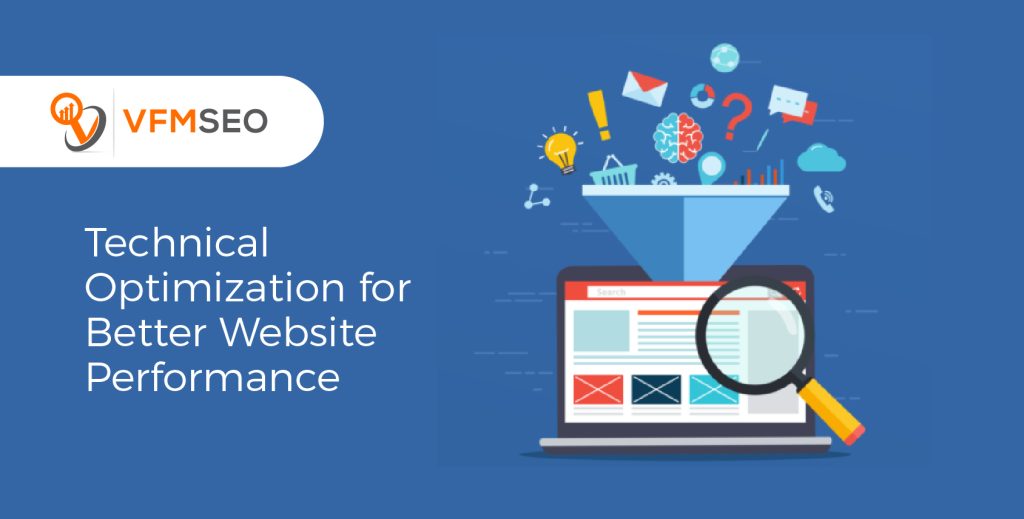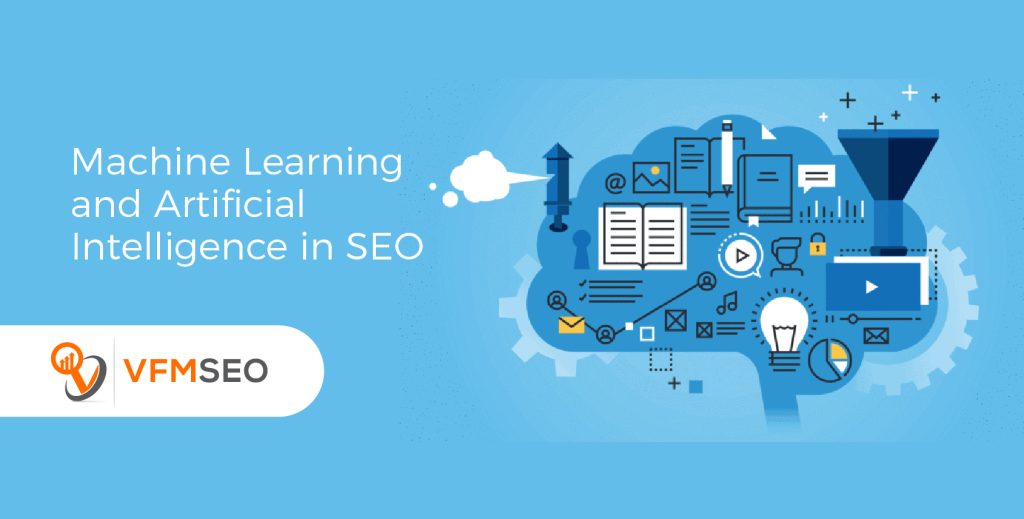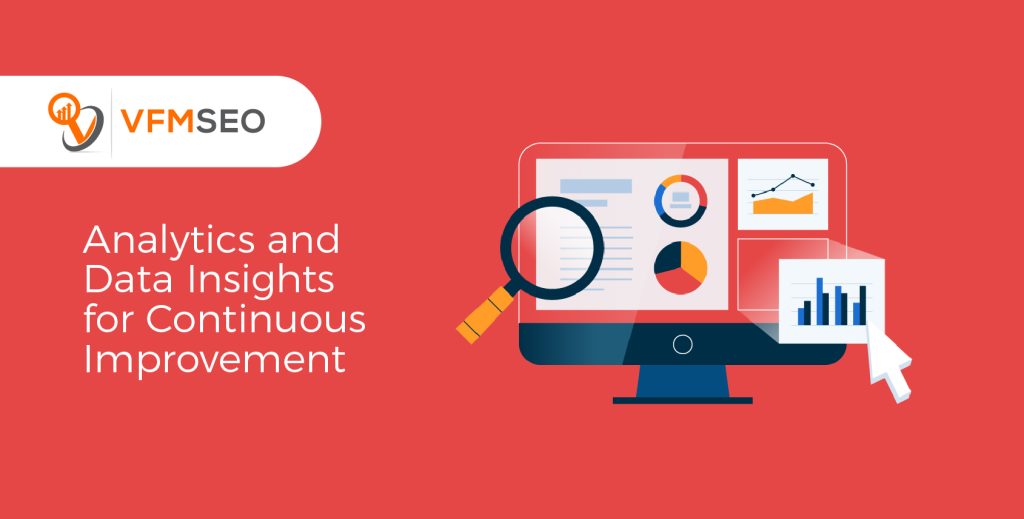
Advanced SEO Services Unlock Your Website’s Potential
In the world of online marketing, Search Engine Optimization (SEO) is a critical tool for businesses to improve their online presence and attract potential customers. As the competition in the digital space continues to increase, businesses are seeking advanced SEO services to stay ahead of the game.
These advanced services include technical optimization, content optimization, machine learning, artificial intelligence, keyword research, and data insights.
Advanced SEO services are designed to take businesses beyond the basics of SEO and into more sophisticated methods of optimization. Technical optimization involves optimizing website performance and infrastructure, improving website speed, security, and accessibility. Content optimization focuses on improving the user experience by ensuring that the content is relevant, engaging, and easy to navigate.
Machine learning and artificial intelligence are used to analyze user behavior and search patterns to optimize website performance. Advanced keyword research and analysis are used to identify the most relevant and high-volume keywords to target. Lastly, analytics and data insights are used to track progress and identify areas for continuous improvement.
Technical Optimization for Better Website Performance

The technical optimization of a website is essential to ensure optimal performance and user experience, which can ultimately lead to increased traffic and revenue. One of the key aspects of technical optimization is website speed. Slow-loading websites can lead to a frustrating user experience, causing visitors to leave the site and never return. This not only negatively impacts user engagement, but it can also hurt a website’s search engine rankings. Therefore, optimizing website speed is critical for improving user experience and search engine visibility.
Another important aspect of technical optimization is mobile optimization. In today’s digital age, more and more people are accessing the internet through their mobile devices. Therefore, having a mobile-friendly website is crucial for providing a positive user experience. A mobile-optimized website allows visitors to easily navigate and interact with the site on their mobile devices, which can lead to increased engagement and conversions. Additionally, Google has indicated that mobile-friendliness is a ranking factor, meaning that having a mobile-optimized website can also improve search engine visibility.
Site architecture is also a key component of technical optimization. A well-structured site architecture can make it easier for search engines to crawl and index a website’s content. This can improve a website’s search engine rankings, as well as make it easier for users to find the information they are looking for. Additionally, a well-designed site architecture can improve the overall user experience by making it easier to navigate and interact with the site. This can lead to increased engagement and conversions.
Technical optimization is critical for improving website performance and user experience. Optimizing website speed, mobile optimization, and site architecture can lead to increased traffic and revenue, as well as improved search engine visibility.
Content Optimization for Enhanced User Experience
Optimizing content for improved user experience is a crucial aspect of effective content marketing. Not only does it help in attracting and retaining visitors to a website, but it also helps in improving its search engine ranking.
One of the key factors that influence user experience is visual design. A website that is visually appealing and aesthetically pleasing is more likely to attract and engage users, keeping them on the site for longer periods.
Another important factor that affects user experience is navigation structure. A website with a clear navigation structure is easier for users to use and helps them find the information they are looking for quickly. A well-organized navigation structure not only improves user experience but also helps search engine crawlers to understand the site’s content better. This, in turn, can help improve the site’s search engine ranking.
Mobile responsiveness is another critical aspect of content optimization for enhanced user experience. With the rise of mobile devices, a significant number of users now access websites through their smartphones and tablets. A website that is not optimized for mobile devices can result in a poor user experience, leading to a high bounce rate and a decline in search engine ranking. Therefore, it is essential to ensure that a website is mobile-responsive and provides a seamless user experience across all devices.
Optimizing content for enhanced user experience is a crucial aspect of effective content marketing. Visual design, navigation structure, and mobile responsiveness are important factors that contribute significantly to improving user experience. By focusing on these aspects, website owners can attract and retain visitors to their site, improve their search engine ranking, and ultimately, achieve their business goals.
Machine Learning and Artificial Intelligence in SEO

Machine learning and artificial intelligence are revolutionizing the world of search engine optimization, transforming the way businesses approach online marketing and providing new opportunities for data-driven decision making. In recent years, search engines have made algorithm updates to ensure that the user experience is improved, and machine learning and AI are playing a critical role in achieving this.
The algorithms used by search engines are becoming more sophisticated, and they are now able to analyze and interpret vast amounts of data in real-time to provide users with the most relevant and personalized search results.
One of the future applications of machine learning and AI in SEO is the ability to predict user behavior. By analyzing user data, search engines can learn what users are looking for and provide them with more personalized search results. This can help businesses to better target their audience and create more effective marketing campaigns. However, there are ethical implications to consider, such as privacy concerns and the potential for bias in the algorithms used.
Another way in which machine learning and AI are transforming SEO is through the use of natural language processing (NLP). Search engines are now able to understand the context and intent behind search queries, allowing them to provide more accurate and relevant search results. This has led to an increase in voice search and the use of long-tail keywords, which are more conversational and natural-sounding.
Machine learning and artificial intelligence are changing the way businesses approach search engine optimization. As search engines continue to update their algorithms and become more sophisticated, businesses will need to adapt and embrace these new technologies to remain competitive.
Advanced Keyword Research and Analysis
Keyword research and analysis have become more sophisticated and data-driven, allowing businesses to identify and target specific niches within their industry. One of the most significant advancements in this field is the use of long tail keywords. Long tail keywords are specific search phrases that contain three or more words and are highly targeted to a particular product or service. By incorporating long tail keywords into their content, businesses can increase their chances of ranking higher in search engine results pages (SERP) and attract more qualified traffic to their website.
Another critical aspect of advanced keyword research and analysis is competitor analysis. Businesses need to know what their competitors are doing to gain an edge in the increasingly competitive online marketplace. By analyzing the keywords used by their competitors, businesses can gain insights into how they can improve their own keyword strategies to stay ahead of the competition. Additionally, by monitoring their competitors’ content, businesses can identify gaps in the market and opportunities to expand their own offerings.
Search intent analysis is another essential element of advanced keyword research and analysis. Search intent refers to the reason behind a particular search query. Understanding search intent is crucial for businesses to create content that aligns with their target audience’s needs and provides relevant solutions to their problems. By analyzing search intent, businesses can identify the type of content that their target audience is looking for and create content that meets their needs, increasing the chances of engagement and conversions.
Advanced keyword research and analysis have become critical for businesses to succeed in the online marketplace. By incorporating long tail keywords, conducting competitor analysis, and understanding search intent, businesses can create targeted content that attracts qualified traffic and converts leads into customers.
Analytics and Data Insights for Continuous Improvement

One critical area for businesses to focus on in their digital marketing efforts is analytics and data insights, which can provide valuable information for continuous improvement. Conversion tracking, user behavior analysis, and A/B testing are all tools that businesses can use to gather data and insights that can help them improve their digital marketing efforts.
Conversion tracking allows businesses to track the number of conversions that their website generates, such as sign-ups, purchases, or downloads. By tracking conversions, businesses can identify which pages or campaigns are most effective at driving conversions and adjust their marketing strategies accordingly.
User behavior analysis is another tool that businesses can use to gain insights into how users interact with their website. This type of analysis can help businesses understand how users navigate their website, which pages they visit most frequently, and which pages they tend to leave quickly. By analyzing user behavior, businesses can identify areas where their website may be causing frustration or confusion for users, and make adjustments to improve the user experience.
A/B testing is a powerful tool that businesses can use to test different variations of their website or marketing campaigns to see which performs best. By randomly showing different versions of a page or campaign to different users, businesses can gather data on which variations generate higher conversion rates or engagement. This data can then be used to make data-driven decisions about which version to use moving forward.
Analytics and data insights are critical for businesses looking to improve their digital marketing efforts. Conversion tracking and user behavior analysis can help businesses understand how users interact with their website and identify areas for improvement, while A/B testing can help businesses test different variations of their website or marketing campaigns to identify the most effective strategies.
FAQs
How much experience does your team have in implementing advanced SEO strategies?
The team’s experience in implementing advanced SEO strategies can be measured through their success rates and industry knowledge. Team training is also essential for staying up-to-date with the latest SEO techniques.
Can you provide examples of successful SEO campaigns you have managed in the past?
The company has managed successful SEO campaigns, as evidenced by their case studies and client satisfaction. Measurable results were obtained through the implementation of advanced strategies, providing tangible evidence of their expertise.
How do you stay up-to-date on the latest SEO trends and algorithm updates?
To stay up-to-date on the latest SEO trends and algorithm updates, professionals can attend SEO community events, read industry publications, and enroll in online courses. Keeping abreast of these resources can help inform effective SEO strategies and improve campaign success.
What is your approach to link building and how do you ensure ethical practices?
Link building ethics involve implementing outreach strategies that prioritize value and relevance. Competitor analysis can inform the identification of reputable websites for link acquisition. Ethical practices include avoiding black hat tactics and maintaining transparency in the link building process.
Can you explain your process for conducting a comprehensive SEO audit and identifying areas for improvement?
The process overview of conducting a comprehensive SEO audit involves analyzing key metrics such as website structure, content quality, and backlinks. Improvement recommendations are made based on the findings to enhance website visibility and rankings.
Conclusion
In conclusion, advanced SEO services are essential for businesses that want to improve their online visibility and attract more traffic to their websites. Technical optimization is crucial for enhancing website performance, while content optimization can enhance user experience and increase engagement. The use of machine learning and artificial intelligence in SEO can help businesses to better understand user behavior and create more targeted content.
Advanced keyword research and analysis can also provide insights into consumer behavior and help businesses to better target their audience. In addition, analytics and data insights are critical in ensuring continuous improvement. By analyzing website metrics, businesses can identify areas for improvement and make data-driven decisions to optimize their website and improve their search engine rankings.
Overall, advanced SEO services are a crucial investment for businesses that want to stay ahead of the competition and succeed in the digital age. With the right strategies and techniques, businesses can improve their online presence and attract more customers to their website.

